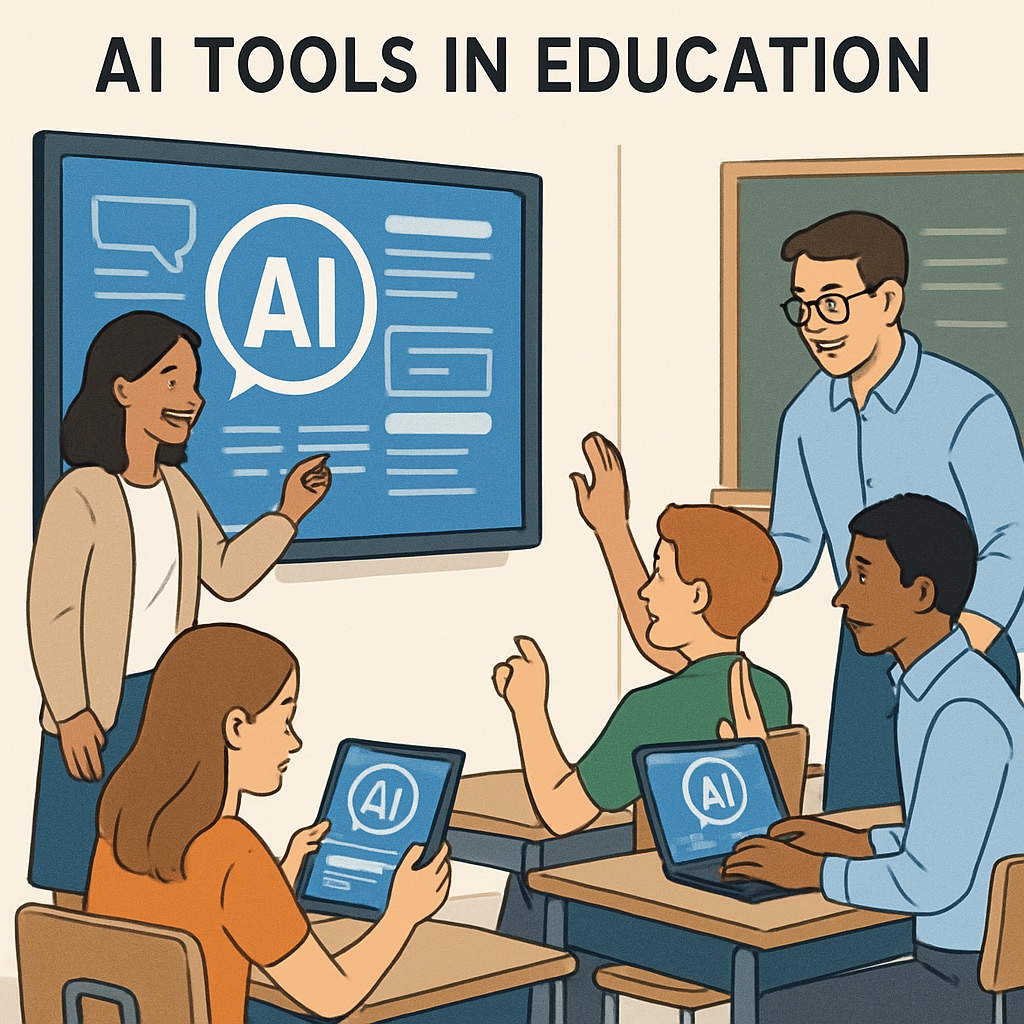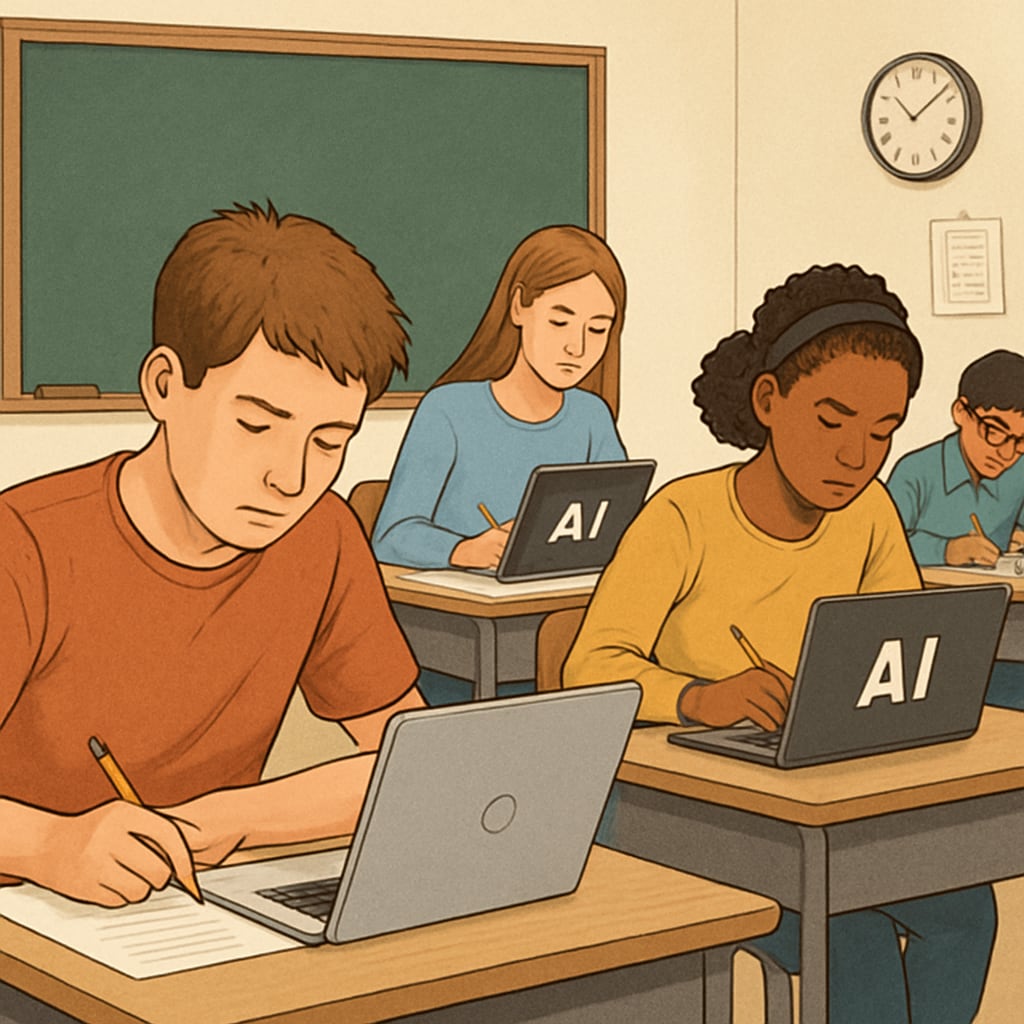The rapid advancement of artificial intelligence (AI) is profoundly affecting K12 education, particularly how students are evaluated through traditional competitive exams. While these exams once served as the cornerstone of fair talent selection, the widespread adoption of AI tools has exposed weaknesses in the existing system. To adapt to the changing landscape, education systems must reform competitive exams to ensure fairness, reliability, and relevance in the AI era.

The Challenges of Traditional Competitive Exams in the AI Era
Traditional competitive exams have long been designed to test students’ knowledge, analytical ability, and time management skills. However, the emergence of AI tools such as ChatGPT, automated problem solvers, and plagiarism-checking software has disrupted this model. Students now have access to unprecedented resources, which can blur the line between independent effort and external assistance.
For example, AI-powered platforms can generate essays, solve complex equations, or even simulate interview responses. While these tools are valuable for learning, they challenge the integrity of competitive exams. The following issues arise:
- Over-reliance on AI: Students may use AI to complete tasks without fully understanding the concepts.
- Difficulty in assessment: It becomes harder to distinguish genuine effort from AI-assisted work.
- Equity concerns: Not all students have equal access to advanced AI tools, leading to disparities in performance.
These challenges highlight the urgent need to rethink how competitive exams are conducted in the AI era.

Reimagining Competitive Exams for Fair Talent Selection
To create a fair evaluation system that accommodates the influence of AI, education policymakers and institutions need to implement reforms. Below are some proposed strategies:
- Emphasize Critical Thinking: Exams should focus on assessing higher-order skills such as analysis, synthesis, and evaluation rather than rote memorization. Open-ended questions and real-world problem-solving tasks can help achieve this.
- Integrate AI Literacy: Instead of banning AI tools, students should be taught how to use them responsibly and ethically. Incorporating AI literacy into the curriculum will prepare students for future challenges.
- Adopt Adaptive Testing: AI-driven adaptive testing can personalize assessments based on a student’s ability level, ensuring a more accurate measure of their skills.
- Include Collaborative Projects: Group assignments and collaborative projects can complement traditional exams, offering a broader perspective on a student’s abilities.
These reforms not only address the limitations of traditional exams but also align with the skills required in a technology-driven world.
Balancing Technology and Fairness in Education
Reforming competitive exams is not just about adapting to AI; it’s about ensuring that the education system remains equitable and effective. Policymakers must strike a balance between leveraging technological advancements and maintaining the core principles of fairness and meritocracy.
For instance, education systems can employ technologies such as AI-driven proctoring to monitor exam integrity. These tools can detect suspicious behaviors and reduce the likelihood of malpractice. Additionally, providing equal access to AI resources for all students can help bridge the digital divide and ensure that no one is unfairly disadvantaged.
Furthermore, collaboration between educators, technologists, and policymakers is crucial. By working together, they can design an evaluation framework that is both innovative and inclusive.
Conclusion
The integration of artificial intelligence into K12 education marks a transformative era. While it brings challenges to traditional competitive exams, it also offers opportunities to create a more robust and fair evaluation system. By emphasizing critical thinking, teaching AI literacy, and leveraging adaptive technologies, we can ensure that talent selection remains effective in the AI era.
As we move forward, the ultimate goal should be to foster an education system that prepares students for the complexities of the modern world while upholding the principles of fairness and equity.
Readability guidance: This article uses short paragraphs, bullet points, and clear transitions to maintain readability. Overuse of passive voice and long sentences has been avoided to ensure clarity and engagement.


